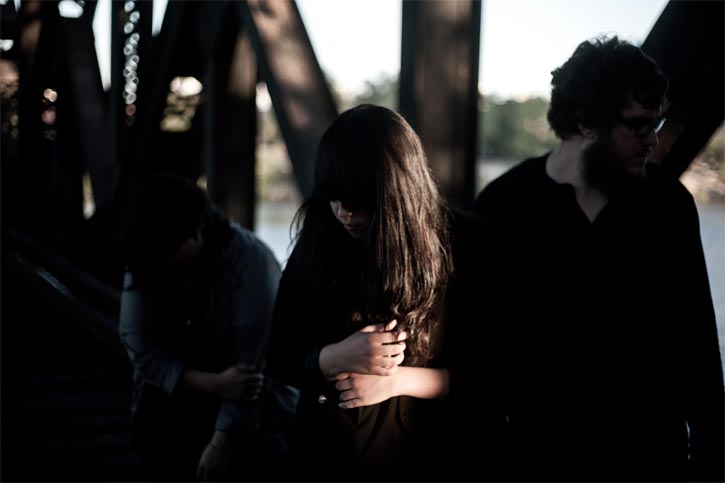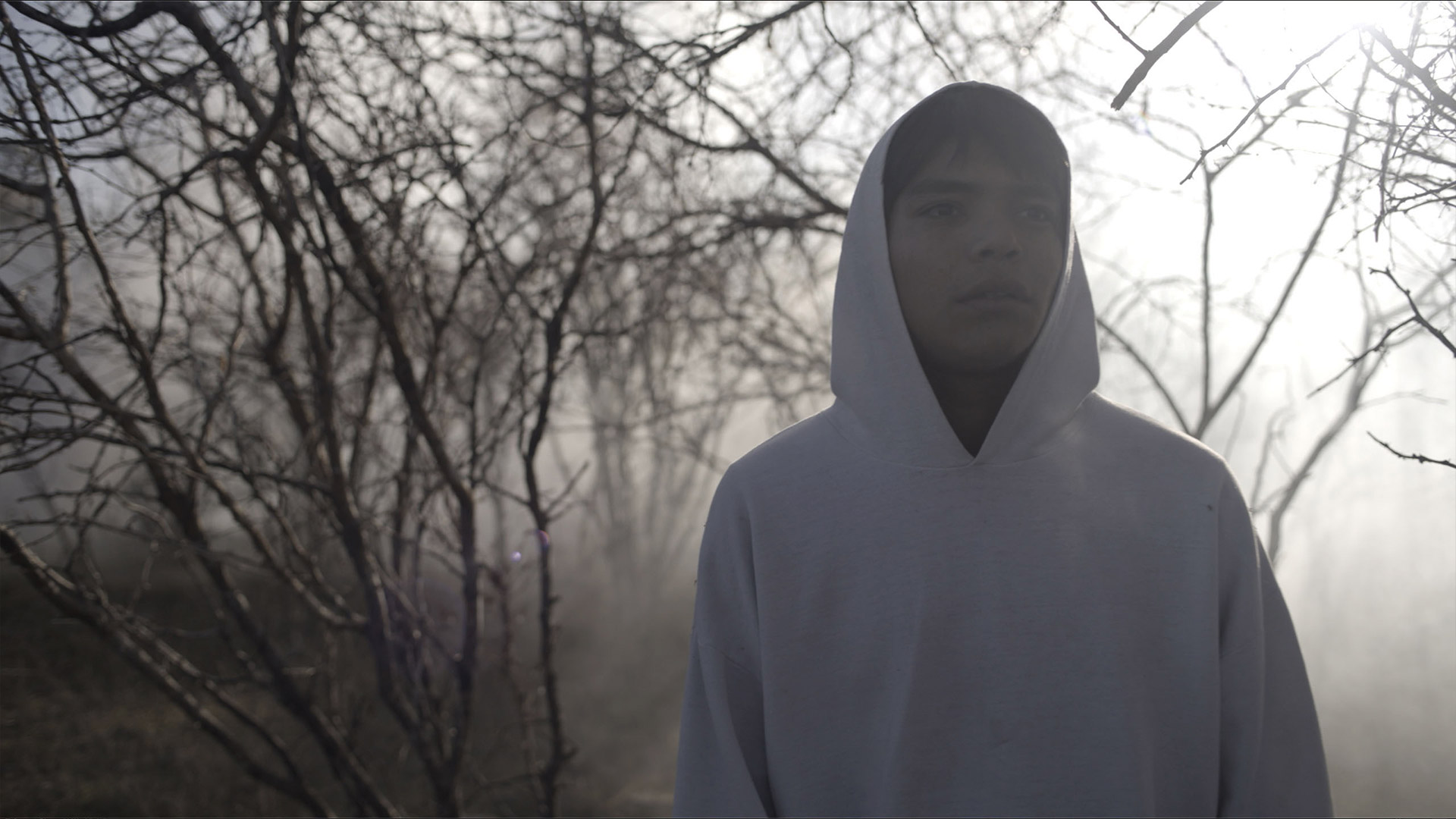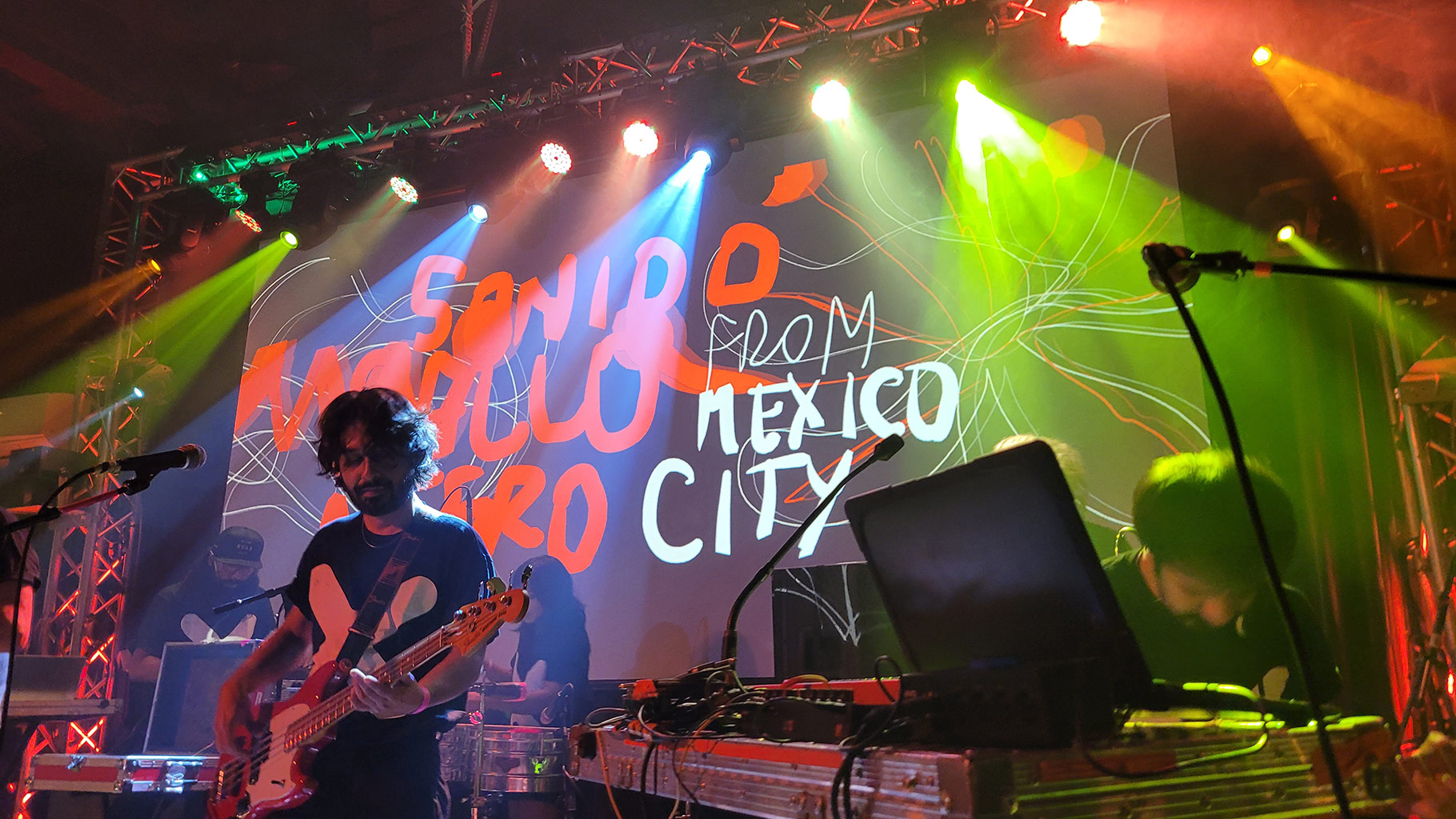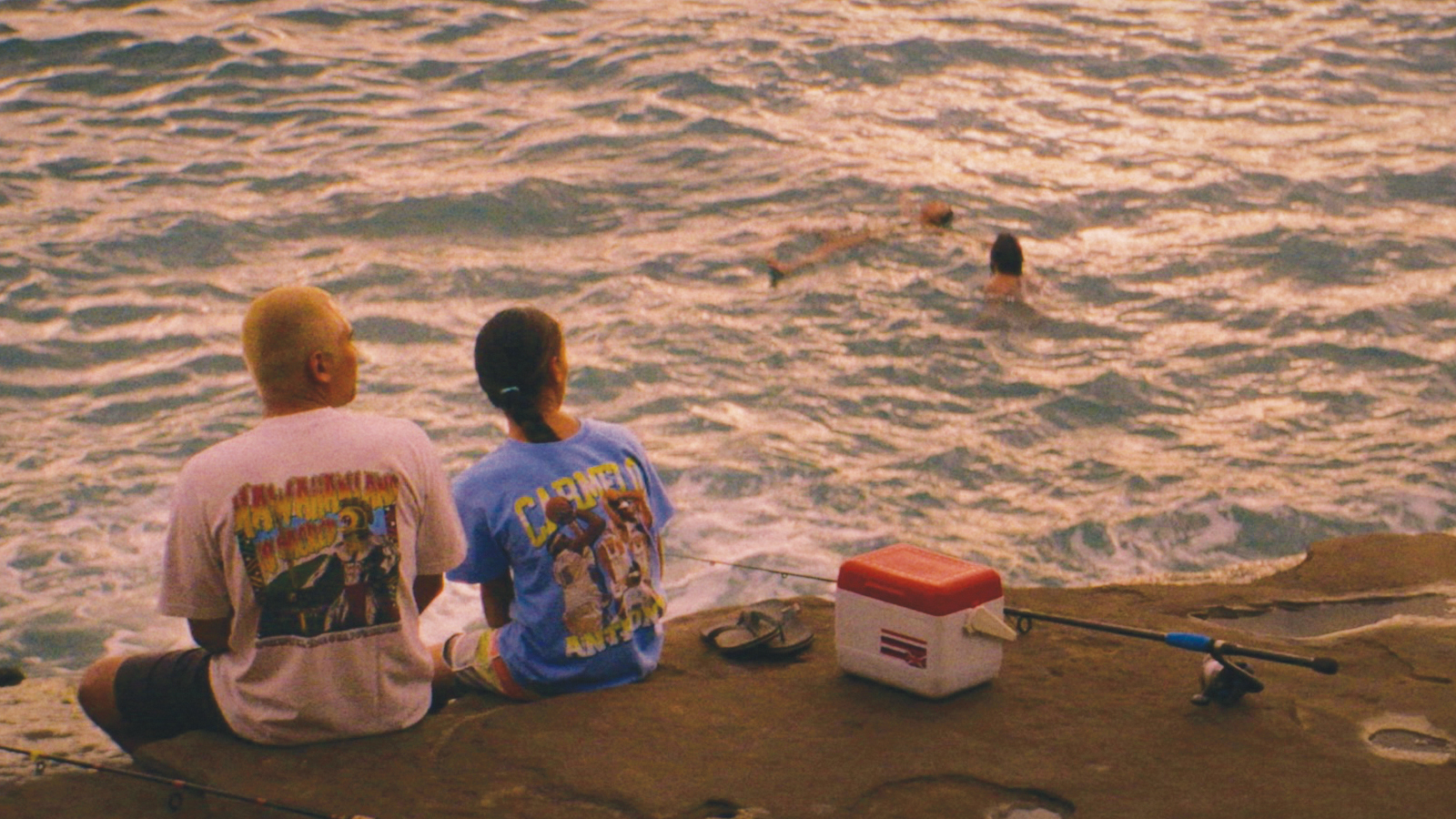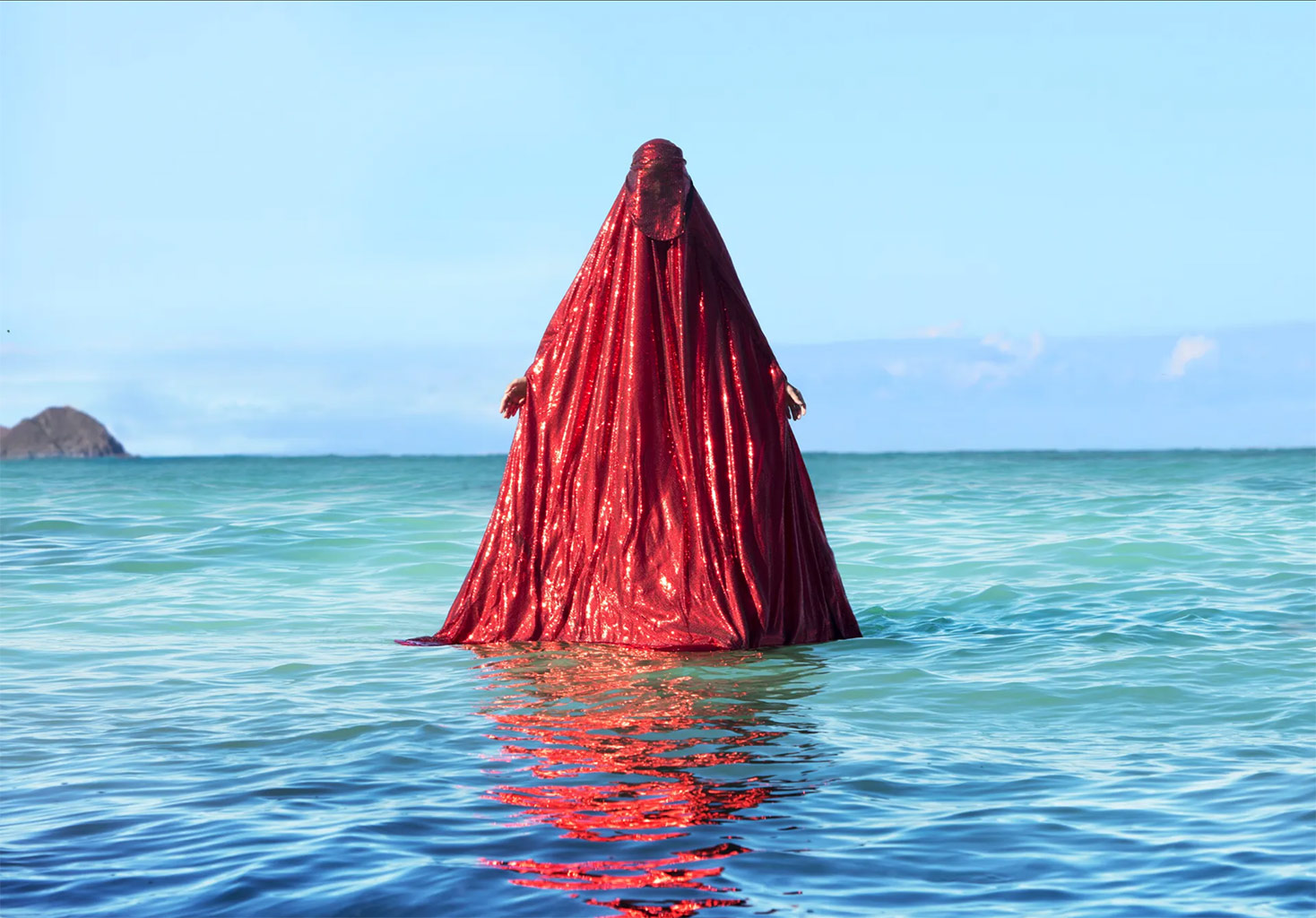“When I think of someone bellowing, I just see a sad, really powerful thing coming out of someone,” explains vocalist Terra Lopez. “Years of an… exhausting type of feeling.”
Bellow is an aural manifestation of such exhaustion — a collective “bellow” from a group of Nothern California musicians who do not shy away from the fascinations which arise from darkness. Filled with trip-hop beats, soaring operatic vocals, distorted guitars, and delicate synth lines, the sonic universe of Sister Crayon is a varied and complex one. What holds consistent, though, is the band’s fortitude, as they explore parallel emotional states through individualized experiences.

Listening Station
Listen to Sister Crayon’s “Arcane”
DOWNLOAD MP3
Full Album Stream: Bellow
Buy + Download Bellow On Bandcamp
Download Sister Crayon’s Covers EP (Free)
See all articles related to Sister Crayon
It Gets Better Project
In September 2010, Dan Savage and his partner, Terry, posted a message on a message on YouTube for LGBT teens everywhere who were facing harassment. The message was simple: “It gets better. However bad it is now, it gets better.” The video was just a small response to a series of bully-induced suicides by LGBT youth.
Since then, The It Gets Better Project has turned into a worldwide movement, inspiring politicians, celebrities, organizations, activists, and personalities alike to submit their own story.
Below is Sister Crayon’s recent contribution to MTV’s It Gets Better special — a reminder to LGBTQ youth that life can and will get better.
Get More: Sister Crayon, MTV Shows
Q&A
Since your music draws from such dark places, do you guys think that music helped you out of a lot of problems?
Terra Lopez: Oh yeah.
Dani Fernandez: The number-one remedy.
Lopez: For me, writing is a form of therapy, because I can’t really afford it, to be honest. There are so many unresolved things, just in life in general, that I’m still trying to process. And the only way to really feel comfortable or okay about it is by singing every night. If we have a tough night or tough day beforehand, I’ll look forward to playing a show because it’s a huge form of some kind of release. And I know for me, if I don’t play a show, I start – if there’s too much of a time period in-between shows, I don’t feel okay; I don’t feel normal. Something’s missing.
Fernandez: It definitely shows, too, when we haven’t been playing music. We just feel that there’s a huge part of us missing, and I feel that we all turn to music to help us from day-to-day. In my own feeling about that is that, it definitely has helped me through every part of my life.
How did the band name come about?
Lopez: I have [synesthesia]. So colors have always meant something really prominent but really promising at the same time… that name came about because at the time, it was just a solo project, and it was really quiet; it was under a different name, which was much more reserved. I knew the music I wanted to make, and it wasn’t what I was doing. so I just thought, you know, I wanna make something more powerful and more intense because that’s how I’m feeling, so I wanna somehow find a way to be able to do that, so Sister Crayon was like an alter-ego. I was like, “So that means bold, so I’m going to have to step it up.” You know what I mean? Be more intense. And then yeah, the band just eventually grew, and finally I was able to make that sound that I was looking for.
“I think our moods all feed off of each other’s,” keyboardist Dani Fernandez continues. She describes how she and Lopez, long-time friends, have always had a complementary artistic relationship. “If one person is feeling something, we all just kind of do… it determines on how the song is written from that point on.”
Early on in Bellow, Sister Crayon lay the foundations for an album of emotionally turbulent material, with both music and lyrics following suit. On opening track, “I’m Still The Same Person,” Lopez evokes morbid imagery, singing, “She showed me what death was like/ She said: take mine, take mine, take mine, like everyone.” Subsequent tracks like “Here We Never Die” and “(In) Reverse” feel nebulous yet suffocating in their use of restraint, as they seem to describe tense bedroom moments and symbolically holding in one’s own blood. Poetic and mythological, Lopez’s lyrics are quite cryptic, making them applicable for any number of hopeless circumstances. Yet, it is only with her admittance that many of her lyrics are personal confessions — words easier for her to set to music than to discuss openly in day-to-day interactions — that one gains a deeper insight into their actual context.
“[Almost] all of the lyrics are mini-conversations to people [who] I could never really tell [things] face-to-face,” Lopez explains, “so the song’s going to be what I really want to tell you, though I may never tell you this was written for you.”
– Terra Lopez
“Here We Never Die,” for example, was written for Lopez’s former girlfriend, as a passive way for Lopez to declare her love and express the sentiment, “Here is our little universe, [in] this 3-minute song.” “Anti-Psalm,” likewise, was written to her father to covertly express the disdain they have for one another. It contains just a few of the many religious and spiritual references on Bellow, and is partially telling of Lopez’s fascinating relationship to religion.
“I grew up in two completely different households,” she explains. “One household was my mother’s, which was very free when it came to religion; and [one was] my father’s, [who was] a Jehovah’s Witness, so it was very strict, very rigid… I grew up conflicted about religion, in general, and not wanting to believe in any of it. As I’m getting older, that’s why I reference it a lot in lyrics, because I want to believe in a religion or in a spiritual realm, but I’m not quite sure what to believe in yet, so I’m just trying to dissect it and write about it; I’m still looking for it, I guess.”
“The rawness of those emotions or feelings is something that we don’t always need to think about; it’s just always something that happens,” Letour adds. “There’s a connection; it’s chemistry, and it’s happening individually [and] those things are all shared in a melting pot of everyday life,” Letour shares. “Because we experience it together, we pull ourselves out of it together. So even if it’s something very dark and intense, we can all go to that spot together and rise out of it.”
It is a special and long-standing relationship, of viewing creation as a healing mechanism, that allows for the members of Sister Crayon to understand one another on a deeper level than words. Thanks to music, every member has found a way to express, understand, and sometimes transcend life’s most intense and difficult experiences. To continue the cycle, they encourage others who feel lost in their own skins to find their own paths towards satisfaction.
“The way that [Dani and I] got through [being bullied in high school], was we found an outlet — which was music,” Lopez explans in an interview with MTV for the It Gets Better Project. “We just focused and put all of our worries, frustrations, confusions, sadness into it… and whatever that outlet is for you — whether it be music, arts, writing, whatever it is — just try to focus on that and become a better person through that frustration.”
Bellow is just the beginning of Sister Crayon’s journey as a band.
“There’s a story for each song that kind of builds the premise for what Bellow is,” Lopez explains. “It’s a cool introduction to the band. For the next record, it will be more thorough.”
Ω
— Terra Lopez

